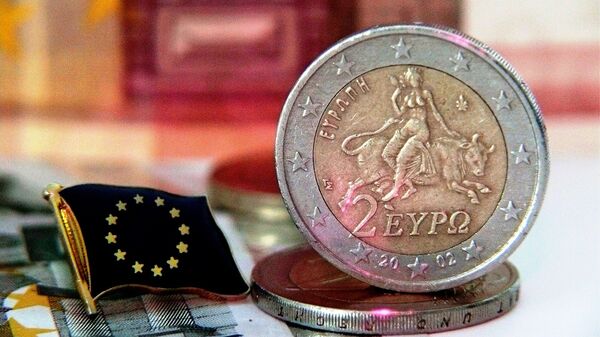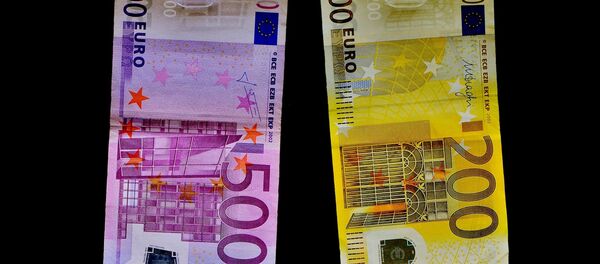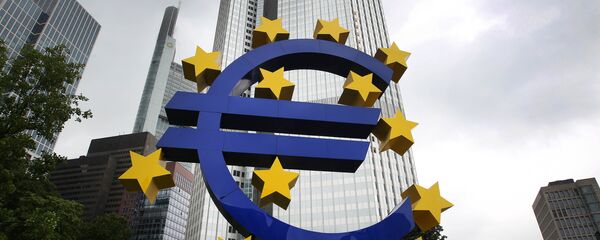Kristian Rouz –Angela Merkel and Emmanuel Macron have delayed their expected announcement of a plan to radically reform the single currency bloc due to other, more acute challenges the two leaders are facing within their own countries. This comes amid the rising identity crisis within the Eurozone, as well as a pushback from the other member countries.
READ MORE: 'Destructive': Swedes Unimpressed by Liberals' 'Euro by 2022' Plan
Plans of sweeping reforms aimed at ensuring the Eurozone’s unity and sustainability will not be presented at a summit of European leaders this month, despite both Macron and Merkel having previously expressed their commitment to addressing several key challenges to the European integration project.
"The thing has been canceled," an anonymous EU official said, according to Der Spiegel. "There’s simply nothing that could be announced."
The Eurozone currently consists of 19 member countries, some of which have expressed their dissatisfaction with the European Central Bank’s (ECB) monetary policies.
Nations of the European North have advocated for tighter monetary conditions as supporting their supply-side model of industrial expansion and trade surplus, whilst the South has pushed for cheaper borrowing costs as helping their debt-and-inflation-driven model of growth.
READ MORE: Italy's Euroskeptic Drive: Euro 'Will Be in Trouble in Several Years' — Prof.
The sides have so far failed to reach a compromise, whilst the ECB has unsuccessfully tried to maintain a mutually-satisfying balance in its policies, producing only an across-the-board disgruntlement and resentment.
Back in December, Merkel and Macron said joint French-German proposals would be unveiled at this month’s summit.
Additionally, political turmoil in Germany, where Merkel’s Christian Democrats had to ally with the left-wing Social-Democrats to offset rising popular support for the right-wing party Alternative for Germany (AfD), has also played its role.
"I could imagine that some things may be postponed since the formation of our government took a bit longer. But it’s still too early to confirm this," spokesman for the German cabinet Georg Streiter said.
Meanwhile, the European Council is more concerned with global trade rather than internal problems within the Eurozone. A pivot to trade protectionism in the US has produced widespread concern among Europe's export-oriented industries, and EC President Donald Tusk urged the European leader to address the looming issue of a ‘serious trade dispute’.
For their part, Merkel and Macron have been pushing for tighter French-German cooperation and closer European integration – an agenda which faces stiff resistance from both of their respective domestic right-wing parties, the National Front and AfD, as well as the Eastern European EU members.
READ MORE: Greece Unlikely to Get New Tranche Before March — European Stability Mechanism
One of the main challenges the Eurozone is facing is its unpreparedness for the next economic crisis. Previously, European officials have proposed transforming the European Stability Mechanism (ESM) into a European Monetary Fund (EMF), a plan back by the International Monetary Fund’s (IMF) chief Christine Lagarde.
Although Eurozone reform might still be announced later this year, the European officials appear to be more concerned with addressing near-term challenges rather than systemic issues that have plagued the Eurozone for years, and threaten to result in the EU’s disintegration in the event of a serious economic shock.





